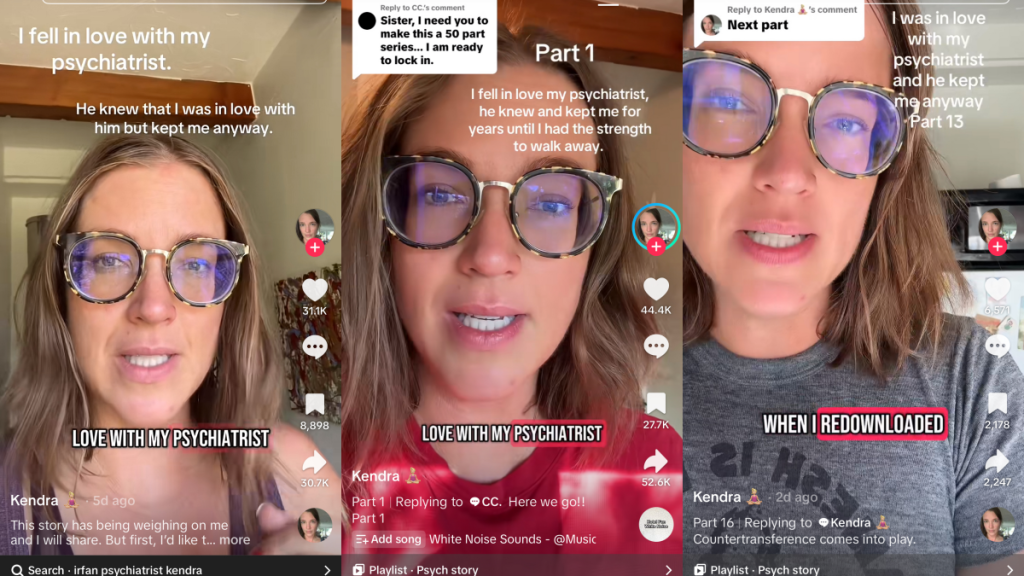A TikTok creator’s viral video series detailing her claims of falling in love with her psychiatrist has ignited widespread debate about the blurred lines between personal storytelling, ethical boundaries in therapy, and the allure of viral engagement. Over the past week, user @kendrahilty has drawn millions of views with daily installments of her story, titled “I was in love with my psychiatrist and he kept me anyway,” while audiences question its authenticity and implications.
The series began with a 30-second clip in which Kendra Hilty, whose real identity remains unverified, opens with the statement, “I fell in love with my psychiatrist…” The video quickly amassed 1.3 million views, 31,000 likes, and 8,000 saves despite comments being disabled. She later expanded the narrative into 33 episodes, with each installment averaging roughly 848,800 views and titles echoing the structure of TikTok’s popular documentary-style series like “Who TF Did I Marry?” Viewership has surged to as high as 3.4 million per video, totaling nearly 90 minutes of content as of Part 19.
While Hilty’s frequent updates and dramatic pacing mirror bingeable true-crime storytelling, the ethical stakes of her narrative have divided viewers. Mental health professionals on Reddit’s r/therapists forum have dissected whether her described interactions with the psychiatrist crossed into predatory territory, citing guidelines that prohibit romantic relationships between clinicians and patients. Some argue the therapist’s alleged decision to continue sessions despite her disclosed feelings—if true—could violate professional codes. Others, however, question the series’ premise entirely, with TikTok users speculating whether the story is fabricated for clicks.
Hilty has addressed skepticism in follow-up videos, responding to queries such as why she didn’t report the psychiatrist (“I did not file a complaint”) and clarifying the frequency of their sessions (“every month”). Yet her refusal to enable comments and the series’ cliffhanger-driven format have fueled further speculation about its motives. As Mashable’s Tim Marcin noted, the runtime parallels a short podcast episode—a format increasingly popular on TikTok for long-form storytelling—though its rapid daily releases suggest a strategic grasp of platform algorithms favoring consistent engagement.
The series’ ambiguity lies at the heart of its virality: Without verifiable details about the psychiatrist’s identity or Hilty’s broader context, the narrative exists in a gray zone between confession and performance. Critics argue such content risks trivializing therapeutic relationships, while supporters frame it as a bold exposure of vulnerable emotional experiences.
As Hilty continues uploading—with no indication of an endpoint—the phenomenon underscores how viral platforms transform personal anecdotes into communal spectacles. Whether viewed as a cautionary tale, exploitation of mental health discourse, or clever engagement strategy, the series has undeniably amplified conversations about trust, accountability, and the ethics of storytelling in the digital age.
